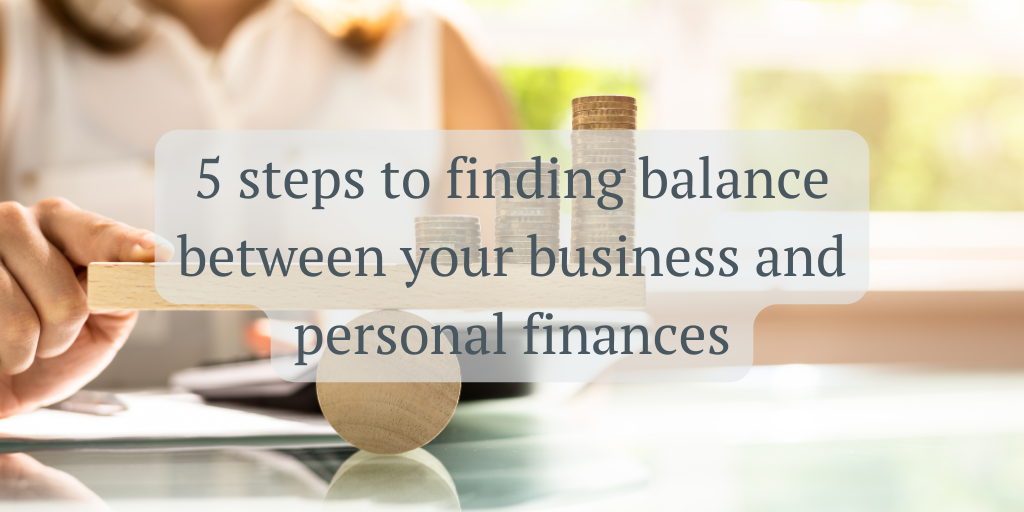
Introduction
Most of my clients are successful entrepreneurs who have accomplished a lot in the face of challenges. Overcoming those obstacles takes commitment and hard work – and a laser focus on ensuring their businesses thrive and survive.
Their ambition is inspiring, yet sometimes this intensity of commitment also contributes to a problem I often see among my clients: they are so focused on business financial goals that they’ve neglected their personal financial goals.
That might be understandable, but from a financial perspective, it is also dangerous. Many entrepreneurs have their wealth and their income completely tied to their businesses. If there’s a downturn – in their business, their industry or the economy in general – they run a heightened risk to their financial security. No doubt, entrepreneurial drive often means making personal sacrifices, but a secure financial future for you and your family shouldn’t be one of them.
So, why do we sometimes put our personal finances on the back burner? Well, when we’re so focused on growing our business and making a difference, things like budgeting and saving for ourselves can slip our minds. We’re all about chasing our dreams, but sometimes we forget to check in on our own financial reality.
Now, you can probably relate to the feeling of trying to keep all the financial plates spinning while running your business – it’s a tricky balancing act!
But here’s the thing: ignoring our personal finances can cause problems for our business in the long run. If we’re not careful with our own money, it can affect how we manage our business finances. It’s like building a house without a solid foundation – it might look good at first, but it won’t last.
So, whilst it’s true that women often neglect to prioritise their own financial wellness, it’s never too late to be more focused and intentional about your money. Here are the lessons I’ve learned from the many mistakes I’ve seen as a money management coach.
Separate your personal and business finances
By opening a separate bank account for your business you will be able to see clearly where your business stands financially. Not only will it give your business more credibility and a sense of legitimacy, but in some cases it may also help reduce your personal liability were something negative to happen down the road. It will also help you to be organised with managing your bills and other payments and save time and stress come tax time.
Only use your business account for payments that relate to your business. For personal spending, treat your business account as you’d treat a former employer’s – hands off. If you have to pay for a personal expense from your business, identify it as “owner drawings” (withdrawals). If you’re putting money into your business, set that up as a loan from you to the business so you know when the business is actually viable.
Understand your cost of living
Without this understanding, it’s easy to fall into the trap of underpaying yourself or overestimating your business’s financial health. By aligning your salary with your cost of living, you ensure that your personal financial needs are met while also setting realistic expectations for your business’s profitability.
So, how do you go about it?
Creating a spending plan or budget can help you live within your means, get out of debt and build up savings so you’re not living from pay to pay. Ultimately, it will help you achieve bigger financial goals such as investing or saving for retirement. It will allow you to track how much money you make each month and where it goes, giving you a sense of control over your finances that helps reduce stress.
Start by calculating your monthly take-home pay and your monthly expenses. If your income varies each month, look at three to six months’ worth of income to come up with an average. Some expenses, like rent, will be the same every month, while others may vary; for the latter, review the past three to six months’ worth of spending to come up with a monthly average. Download my Personal Income and Expenses Worksheet to help with your calculations.
Remember that the goal is to have more money coming in that what is currently going out. If you discover that you’re spending more than you make every month, review your expenses for places to cut back. Do you have extra money left over each month? Allocate some of it for discretionary purchases, and budget the rest for long-term financial goals such as building your emergency fund, paying down debt or saving a deposit for a home.
Take control over unnecessary spending. Do you NEED 20 pairs of shoes and a matching bag for each? Do you NEED a new vehicle every three years? Before making a purchase, ask yourself if it will contribute to your building a successful business or take you further away from it.
Whenever you start making more money be careful of lifestyle creep, or increasing your standard of living. When we feel financially abundant we tend to spend more, buy that new car or latest tech gadget. This tendency will keep you from becoming financially independent.
What this means is that no matter what good fortune comes your way, do not change your standard of living by buying things you really don’t need. Instead put the extra money into savings/investments or towards paying off debts.
Pay yourself from your business
Transfer the money to your personal bank account, and then behave as you would if you were working for someone else. That is, once the money runs out, tighten your belt and wait patiently for the next payday.
The good thing about setting a certain amount of money every month as your salary is that you will be able to determine if you are indeed making enough money to pay for all your business expenses and at the same time pay yourself for your efforts. Even if your business is doing well and you have plenty of money in the business account, do not be tempted to draw more than you should. Keep the money in the business account for future business growth.
At the end of the year, you might want to give yourself a bonus. If you have been consistently following your own rules regarding your finances, you will be surprised at how much money you will have left in your business account at the end of the year.
Build a financial safety net
Having three to six months’ worth of living expenses tucked away in an interest-bearing account is a good beginning. Figure out what your family needs to comfortably live on if all income stops. Then start saving as much money as you can until you have built up this safety net. To make this grow even faster, add any bonuses, tax refunds etc. as well.
Don’t just stop there. Make it a goal to add to your safety cushion as you can and come back and revise your numbers from time to time. Your living expenses may go up or down over time and you can adjust how much you need to set aside in quickly accessible money accordingly.
Life and disability insurance are another important part of your financial safety net. Do you have a plan in place to continue to cover your living expenses (or those of your family) when you can no longer work? Call up your insurance agent and go over your current coverage. Make sure the insurance you’re paying for will pay out what you need and if not, make adjustments.
Lastly, let’s not forget about saving for the future. It’s easy to get caught up in investing in our business and forget to set aside money for retirement. But taking care of our future selves is just as important as growing our business today.
Once you have your safety cushion firmly in place, consider investing any additional savings into higher interest bearing accounts or your retirement fund. While you may not be able to access any money invested here right away, it will come in handy when you’re dealing with a long term financial emergency or are ready to retire. The plus side is that there are plenty of investment vehicles out there that will get you a much better return than your ordinary savings account at the bank.
Keep an eye on your cashflow
So, what is cash flow? It’s simply the money that flows in and out of your business on an everyday basis.
(Cash in the bank) + (Cash you expect to receive) – (Cash you spend)
Even if your business is raking in good money, you can still find yourself in a cash crunch at some point. That’s where managing your cash flow becomes crucial.
Now, you might be tempted to leave it all in the hands of your trusty bookkeeper or accountant. After all, their job is to maintain accurate records and handle your taxes. But here’s the thing: relying solely on them won’t give you the clarity and control you need over your money.
Bookkeeping is all about looking backward, but to plan for the future and confidently manage your cash, you need to be on top of your day-to-day money movement. Ignorance is not bliss when it comes to your finances; it only adds to your stress.
Cash flow is the lifeblood of your business. It’s possible to have a profitable year overall but run out of cash at a particular moment. In fact, in Australia, more than 60% of small businesses fail within the first 3 years, and a whopping 90% of those failures are due to poor cash flow management.
That’s why paying attention to your bottom line is absolutely vital, especially if your income tends to fluctuate. It’s time to take control and keep your cash flowing smoothly.
I have an Excel template you can use to develop a cash flow forecast that allows you to see at a glance whether you’ll be able to meet your financial commitments and quickly take remedial action where needed.
In a nutshell, finding the right balance between personal and business finances takes some thought and planning. By keeping our accounts separate, taking care of our personal money, paying ourselves appropriately, saving for the future, and managing our cash flow we can set ourselves up for success – both now and down the road.
Here’s to finding that balance and making every dollar count!
My VIP Spending Planner Coaching Program is my bespoke program for entrepreneurs. It will equip you with the knowledge and tools to take control of your personal AND business finances so you can grow your business and live your desired lifestyle. You can read more about it here or if you have any questions, send me an email at marlene@insightspendingplanners.com


Finally, something worth reading. It’s always nice to find postings like this one.
Thank you so much! I’m glad you found it useful.